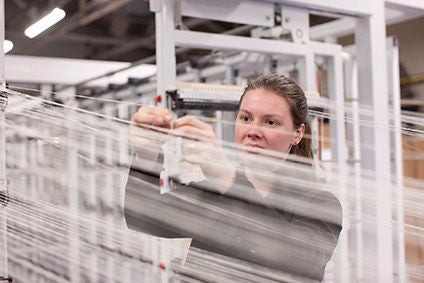
A new global survey has highlighted an “unprecedented” skills crisis in the fashion industry, creating a ‘war for talent’ across the supply chain. It also suggests the industry is not only dissatisfied with the current training being provided, but that it is also failing to address the need for new competencies heading into the future.
One of the biggest issues facing brands and vendors is hiring people with the right skills, according to report ‘The State of Skills in the Apparel Industry 2018‘ by apparel size and fit specialist Alvanon. Around 62% of respondents say they are struggling to fill certain positions, with 30% of those surveyed actively dissatisfied with the training being provided.

Discover B2B Marketing That Performs
Combine business intelligence and editorial excellence to reach engaged professionals across 36 leading media platforms.
The survey, which represents the views of 642 executives, HR leaders, industry practitioners and employees across the international supply chain, found that like other sectors, the apparel industry sees learning as a critical business concern. Yet only 73% of business leaders rank employee learning as a key business issue indicating the industry may be lagging behind.
When speaking to apparel industry executives on a one-to-one basis, the challenges around underinvestment in employee learning emerge in a different way. Hong Kong Research Institute of Textiles and Apparel (HKRITA) CEO Edwin Keh says of the issues faced by the industry: “Every buying office or trading company I talk to, I ask ‘what is your biggest challenge?’ and the answer is mostly around people and skills.”
As digitalisation takes place across the supply chain, staff need to contend with new skills—from understanding big-data facilitated buying and merchandising, to 3D design, to automation, through to new, more collaborative ways of managing product life cycles, the report emphasises.
Industry associations, as well as companies, are starting to take notice, as Matthijs Crietee, secretary general of the International Apparel Federation (IAF) says: “The faster the industry changes, the more important it is to have the right training available for all working in fashion. So it is super important now and we need more of it.”

US Tariffs are shifting - will you react or anticipate?
Don’t let policy changes catch you off guard. Stay proactive with real-time data and expert analysis.
By GlobalDataThe report states that the imperatives for business now include figuring out how to engage employees and provide professional development, or risk losing them.
“As the apparel industry begins to recognise and implement digitalisation as a way of delivering on speed, customisation and transparency, it is revealing gaps in the specialised skills set of its workforce,” explains Janice Wang, CEO of Alvanon. “Our survey findings conclude that failure to respond to skill shortages will result in the generalisation of poor market practices and adversely impact business performance across the supply chain.”
She adds: “Improving the apparel industry by upping its skills is, ultimately, a collective responsibility shared between all players in the value chain and the individual professionals themselves. This survey clearly shows where we need to start and that we need to start immediately.”
The survey is part of Alvanon’s ongoing efforts to address the training and development needs of the apparel industry worldwide. The report aims to highlight labour force challenges faced by the industry and prompt readers to question their own company’s state of affairs in terms of training and strategy or lack of it.
The 642 respondents comprised one-third of workers from North America, one-third Asia Pacific, one-fourth Central & South America, the rest from Europe and others.
Industry associations involved in the survey included the American Apparel & Footwear Association (AAFA), Association of Suppliers to the British Clothing Industry (ASBCI), The Hong Kong Research Institute of Textiles and Apparel (HKRITA), and Modint (Netherlands).





